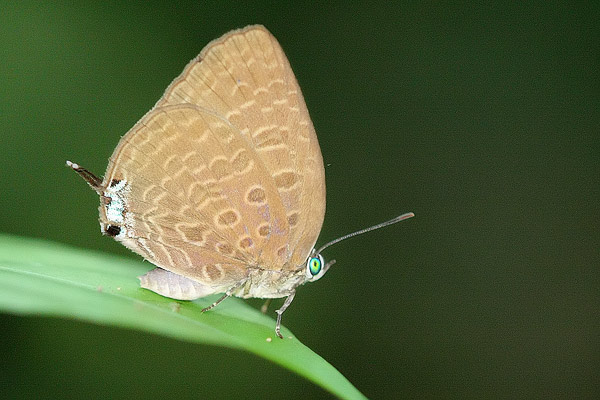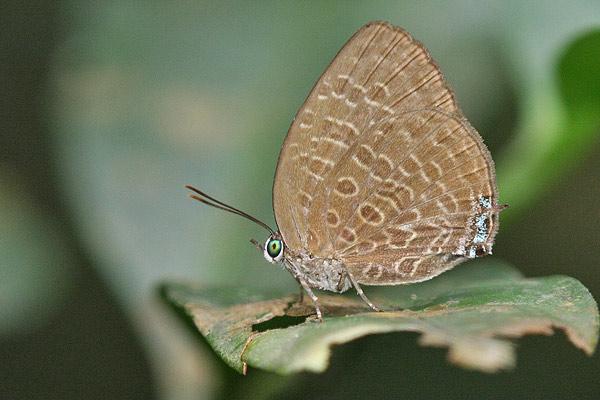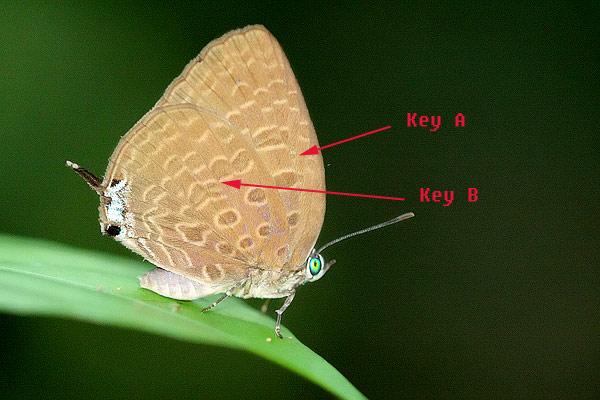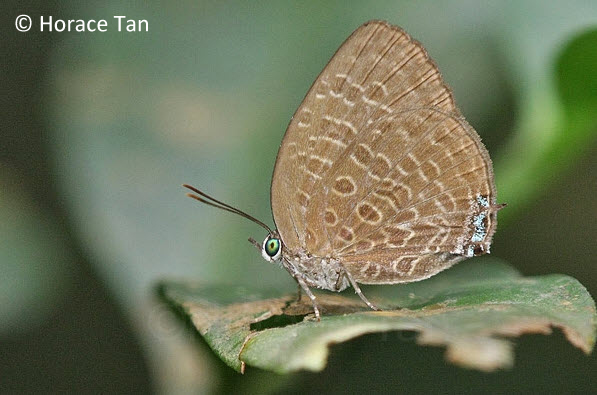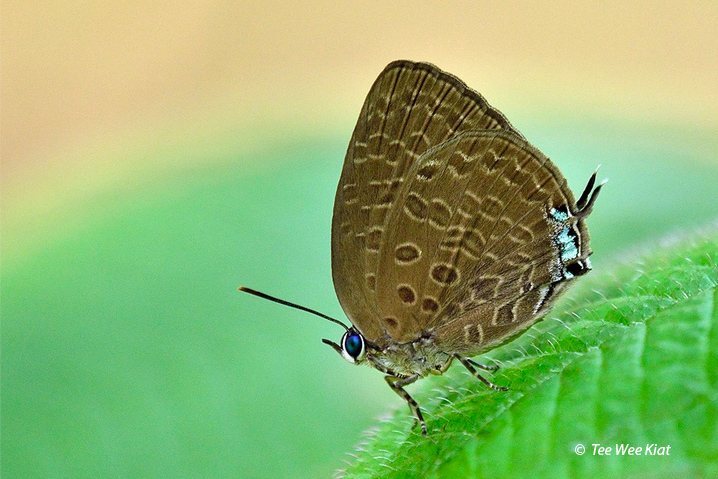Arhopala pseudomuta pseudomuta
Raffles Oakblue
| Family: | Lycaenidae |
| Subfamily: | Lycaeninae |
| Genus | Arhopala |
| Species: | pseudomuta |
| Subspecies: | pseudomuta |
| Common Name: | Raffles Oakblue |
| Life History: | incomplete |
| Extant in countries: | •Singapore |
| Hostplants: |
Description
Arhopala pseudomuta pseudomuta (Raffles' Oakblue) is a member of the alitaeus group which is characterized by the presence of a central spot in space 11 on the forewing underside.On the hindwing underside, the post-discal spot in space 6 is usually slightly oblique and not overlapping with the end-cell bar.
A further characteristic on the forewing underside is the presence of a spot at the extreme base of space 10 above the central cell spot.
Occasionally this spot is absent on one or both sides.
On the upperside, the male is violet blue with the forewing border about 1.0mm wide, whereas the female is blue with a broader forewing border.
Habitat & Habits
Among members of this group, Raffles' Oakblue has its underside hair brown in colour with markings hardly darker than the ground colour. When encountered in a dimly-lit environment, this might give an illusion of a butterfly with a uniformly light brown underside.
In Singapore, Raffles' Oakblue is moderately rare with infrequent sightings made within the Central Catchment Area.
Other Observations
To be detailed.
Early Stages
To be detailed.
Further Reading
To be detailed.

